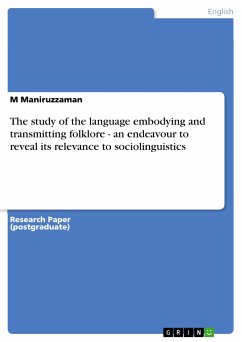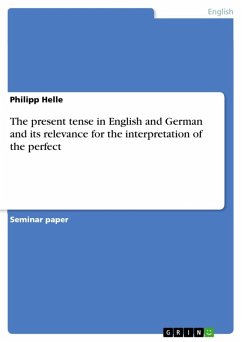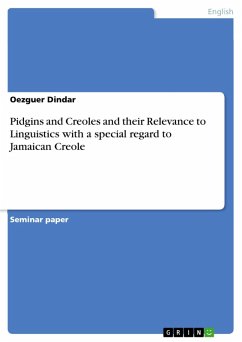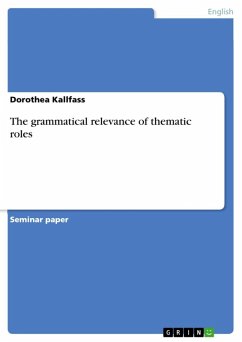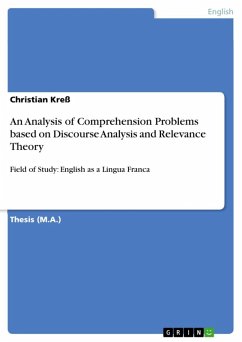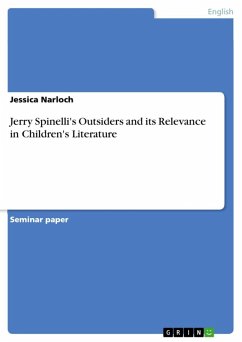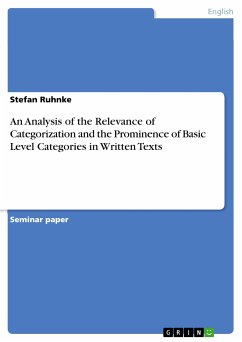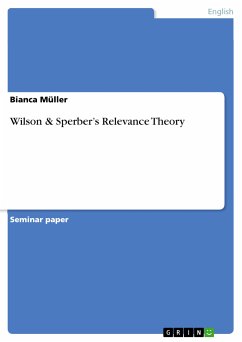Research Paper (postgraduate) from the year 2008 in the subject English Language and Literature Studies - Linguistics, grade: none, Jahangirnagar University (Department of English), course: Folklore and sociolinguistics, language: English, abstract: This paper tries to examine and determine the relevance of the study of the language of folklore to sociolinguistics since folklore being constituted by all the facets of the traditions, customs and culture of the speech community is embodied and composed in, and manifested and transmitted by means of language, particularly speech, and sociolinguistics discovers and ascertains the relations of language to society. To explore the issue in question, the researcher first explicates the role of language in folklore and then highlights the aspects of language studied in sociolinguistics. Finally, the relevance of the study of the language of folklore to sociolinguistics has been established and exhibited.
Dieser Download kann aus rechtlichen Gründen nur mit Rechnungsadresse in A, B, BG, CY, CZ, D, DK, EW, E, FIN, F, GR, HR, H, IRL, I, LT, L, LR, M, NL, PL, P, R, S, SLO, SK ausgeliefert werden.

